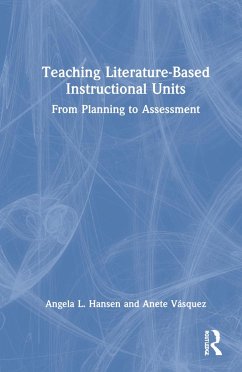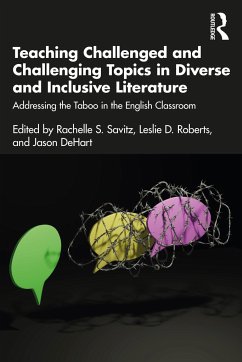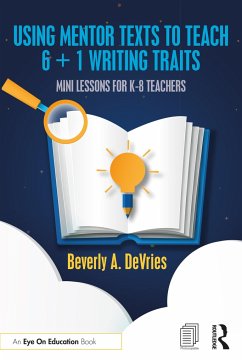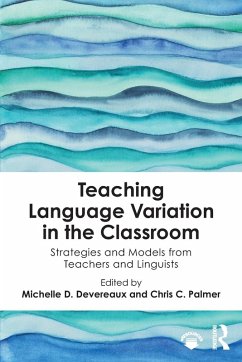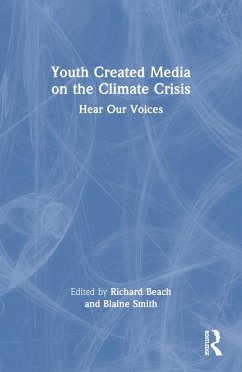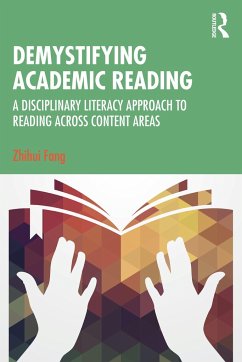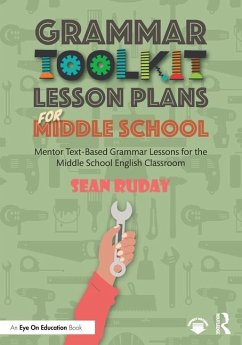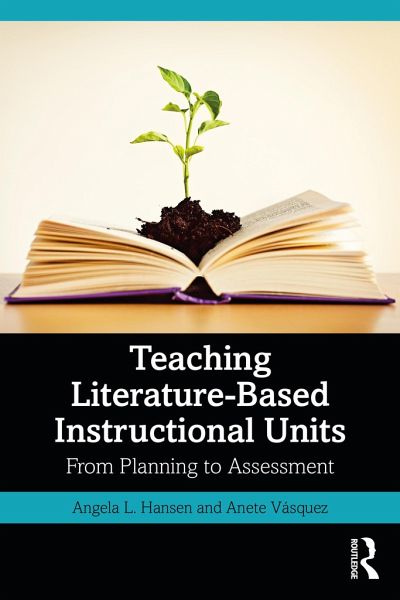
Teaching Literature-Based Instructional Units
From Planning to Assessment
Versandkostenfrei!
Versandfertig in 6-10 Tagen
43,99 €
inkl. MwSt.
Weitere Ausgaben:

PAYBACK Punkte
22 °P sammeln!
Teaching Literature-Based Instructional Units: From Planning to Assessment provides an accessible roadmap to planning, designing, and implementing literature-based instructional units for the English Language arts (ELA) classroom. Understanding that unit plans are the building blocks of the ELA curriculum, Hansen and Vásquez outline the theoretical foundations and approaches behind teaching ELA and offer a framework to help readers make sound decisions about their content pedagogy. In so doing, this text offers research-based and straightforward guidance on planning instruction around key lit...
Teaching Literature-Based Instructional Units: From Planning to Assessment provides an accessible roadmap to planning, designing, and implementing literature-based instructional units for the English Language arts (ELA) classroom. Understanding that unit plans are the building blocks of the ELA curriculum, Hansen and Vásquez outline the theoretical foundations and approaches behind teaching ELA and offer a framework to help readers make sound decisions about their content pedagogy. In so doing, this text offers research-based and straightforward guidance on planning instruction around key literary texts. Placing literature at the center of the ELA curriculum, the approaches in this book not only support students' reading, writing, listening, speaking, and digital media skills, but will also motivate and inspire them.
Part 1 addresses how to choose unit themes and texts, discusses the importance of having a rationale for choices made, and examines the practical, philosophical, and historical approaches to teaching literature. Part 2 provides step-by-step instructions for designing literature-based units of instruction by using backwards design. The text focuses on assessment before moving into how to scaffold and sequence lessons to meet learning objectives, and concludes with consideration given to teaching ELA in virtual environments. The wealth of activities, strategies, exercises, examples, and templates in this book make this text essential reading for instructors and pre-service teachers in ELA pedagogical methods courses and for practicing teachers of literature instruction.
Part 1 addresses how to choose unit themes and texts, discusses the importance of having a rationale for choices made, and examines the practical, philosophical, and historical approaches to teaching literature. Part 2 provides step-by-step instructions for designing literature-based units of instruction by using backwards design. The text focuses on assessment before moving into how to scaffold and sequence lessons to meet learning objectives, and concludes with consideration given to teaching ELA in virtual environments. The wealth of activities, strategies, exercises, examples, and templates in this book make this text essential reading for instructors and pre-service teachers in ELA pedagogical methods courses and for practicing teachers of literature instruction.





